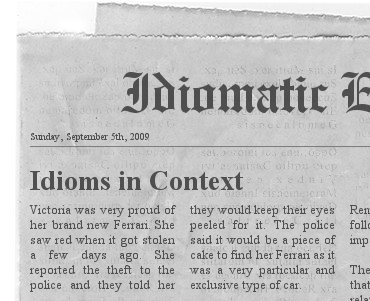MAKING ENDS MEET:
A WIKI CALLED ENGLISH LANGUAGE AND CULTURE THROUGH IDIOMS
Problem Statement
Problem Statement
As far as I can tell, awareness is not raised sufficiently among advanced students of the School of Modern Languages of the Universidad Central de Venezuela about the importance of learning English sayings and proverbs. Neither are new technologies sufficiently applied in the courses given. The end in view is that students use new technologies to expand on their knowledge and broaden their communicative competence in their second language, so that they improve their performance as translators and interpreters. Furthermore, I am convinced that students’ and teachers’ attention is not drawn sufficiently on the proper use of sayings and proverbs in specific occasions or situations. That is, students should not only be able to recognize sayings and proverbs but also to learn to use them naturally with the aim of sounding as native-like as possible. Therefore, the design of a wiki called English language and culture through idioms can be considered a preliminary study of a research to be carried out with the purpose of broadening the knowledge and the communicative competence of advanced learners of the English language in the School of Modern Languages at the Universidad Central de Venezuela.

